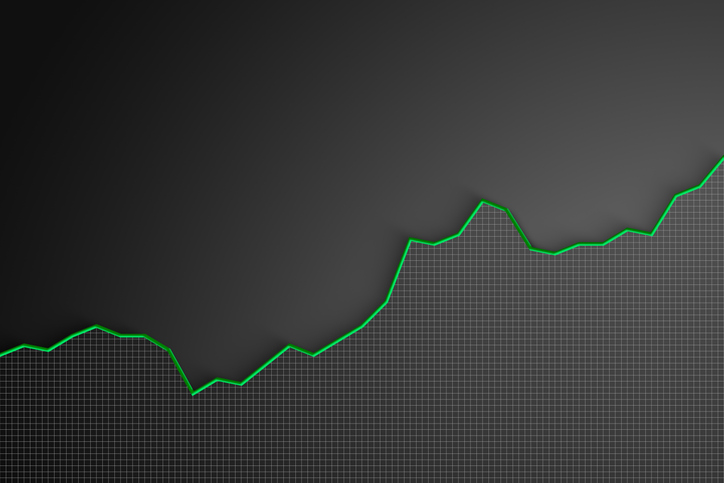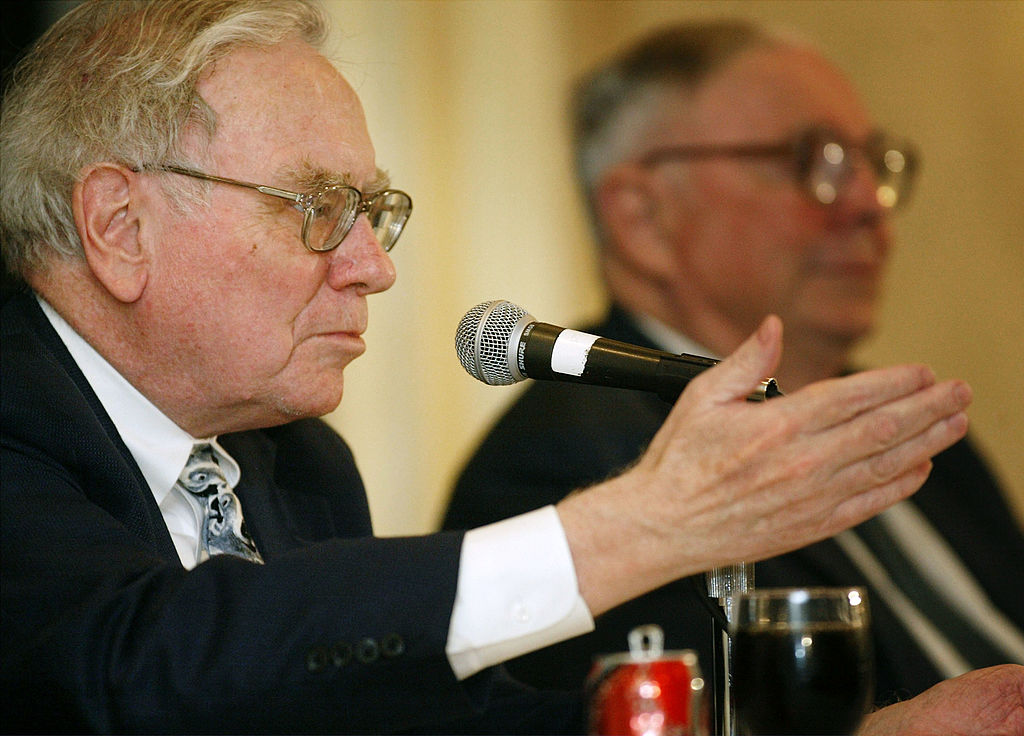Is the Market Rational?
Nobel laureate Robert Shiller showed that fluctuations in the stock market were consistent with fads and euphoria.

Profit and prosper with the best of Kiplinger's advice on investing, taxes, retirement, personal finance and much more. Delivered daily. Enter your email in the box and click Sign Me Up.
You are now subscribed
Your newsletter sign-up was successful
Want to add more newsletters?

Delivered daily
Kiplinger Today
Profit and prosper with the best of Kiplinger's advice on investing, taxes, retirement, personal finance and much more delivered daily. Smart money moves start here.

Sent five days a week
Kiplinger A Step Ahead
Get practical help to make better financial decisions in your everyday life, from spending to savings on top deals.

Delivered daily
Kiplinger Closing Bell
Get today's biggest financial and investing headlines delivered to your inbox every day the U.S. stock market is open.

Sent twice a week
Kiplinger Adviser Intel
Financial pros across the country share best practices and fresh tactics to preserve and grow your wealth.

Delivered weekly
Kiplinger Tax Tips
Trim your federal and state tax bills with practical tax-planning and tax-cutting strategies.

Sent twice a week
Kiplinger Retirement Tips
Your twice-a-week guide to planning and enjoying a financially secure and richly rewarding retirement

Sent bimonthly.
Kiplinger Adviser Angle
Insights for advisers, wealth managers and other financial professionals.

Sent twice a week
Kiplinger Investing Weekly
Your twice-a-week roundup of promising stocks, funds, companies and industries you should consider, ones you should avoid, and why.

Sent weekly for six weeks
Kiplinger Invest for Retirement
Your step-by-step six-part series on how to invest for retirement, from devising a successful strategy to exactly which investments to choose.
Sweden’s central bank recently awarded the Nobel Prize in economics to Robert Shiller, of Yale University, and Eugene Fama and Lars Hansen, of the University of Chicago, for their research into the sources of price fluctuations in the stock market. I have known Bob Shiller for 47 years, first as a fellow PhD student at MIT, then as a colleague, coauthor and best friend. His Nobel Prize was an honor richly deserved.
Shiller’s work supported the belief that the financial markets are frequently irrational. So, many people thought it odd, if not downright confusing, that the prize was also awarded to Fama for his work in support of the efficient-market hypothesis, which states that prices always rationally reflect all the information that’s available about securities. On closer examination, the conclusions of Shiller and Fama aren’t as contradictory as they first appear.
Shiller’s most important contribution was his 1981 article titled “Do Stock Prices Move Too Much to Be Justified by Subsequent Changes in Dividends?” His answer was a resounding yes. He showed that fluctuations in the stock market were consistent with fads and euphoria that had little to do with the fundamental factors that determine the price of an asset. Shiller’s work gave a boost to the behavioral finance wing of the finance profession, which challenged the theory of rational investors and efficient markets that most academics embraced.
From just $107.88 $24.99 for Kiplinger Personal Finance
Become a smarter, better informed investor. Subscribe from just $107.88 $24.99, plus get up to 4 Special Issues

Sign up for Kiplinger’s Free Newsletters
Profit and prosper with the best of expert advice on investing, taxes, retirement, personal finance and more - straight to your e-mail.
Profit and prosper with the best of expert advice - straight to your e-mail.
Gene Fama, however, had been a strong supporter of the efficient-market hypothesis. And if its contention that securities prices reflect all publicly available information was correct, investing on the basis of widely known fundamental factors could not improve investor returns.
Yet Fama, along with Dartmouth professor Kenneth French, showed that contrary to the efficient-market hypothesis, there appeared to be publicly known factors—such as a company’s size, earnings, cash flow and book value—that could be used to predict stock returns. In a 1996 article, they concluded that their results could be “consistent with specific irrational-asset-pricing stories.”
What Fama and French found is what value investors such as Warren Buffett and Benjamin Graham have long known. If market prices do not always reflect fundamentals, then investors can indeed achieve superior returns by buying stocks when they are cheap and out of favor—when, say, their prices are low relative to a company’s earnings, dividends or book value. In fact, Fama is a director and consultant for Dimensional Fund Advisors, a successful firm that manages more than $300 billion in portfolios that pick stocks according to specific criteria that historically have produced superior results.
Reacting to uncertainty. Although Fama seemed to open the door to irrational-asset-pricing stories, his own belief is that it is wrong to call these anomalies irrational. He says that we have yet to discover a more general theory to explain what we observe, just as the irregularities in celestial orbits first observed in the Middle Ages were eventually explained by the sun-centered view of the solar system.
The research of Fama and Shiller has challenged the profession to determine whether fluctuations in asset prices are better explained by psychological and behavioral factors or by a more general theory of how investors react to uncertainty. The Nobel committee concluded that both men have made progress toward this end. The committee also awarded the prize to Lars Hansen, who developed innovative empirical techniques to test whether the market is efficient. I was honored to have been invited to Stockholm to celebrate their awards.
Profit and prosper with the best of Kiplinger's advice on investing, taxes, retirement, personal finance and much more. Delivered daily. Enter your email in the box and click Sign Me Up.

-
 Nasdaq Leads a Rocky Risk-On Rally: Stock Market Today
Nasdaq Leads a Rocky Risk-On Rally: Stock Market TodayAnother worrying bout of late-session weakness couldn't take down the main equity indexes on Wednesday.
-
 Quiz: Do You Know How to Avoid the "Medigap Trap?"
Quiz: Do You Know How to Avoid the "Medigap Trap?"Quiz Test your basic knowledge of the "Medigap Trap" in our quick quiz.
-
 5 Top Tax-Efficient Mutual Funds for Smarter Investing
5 Top Tax-Efficient Mutual Funds for Smarter InvestingMutual funds are many things, but "tax-friendly" usually isn't one of them. These are the exceptions.
-
 What Made Warren Buffett's Career So Remarkable
What Made Warren Buffett's Career So RemarkableWhat made the ‘Oracle of Omaha’ great, and who could be next as king or queen of investing?
-
 With Buffett Retiring, Should You Invest in a Berkshire Copycat?
With Buffett Retiring, Should You Invest in a Berkshire Copycat?Warren Buffett will step down at the end of this year. Should you explore one of a handful of Berkshire Hathaway clones or copycat funds?
-
 Stocks at New Highs as Shutdown Drags On: Stock Market Today
Stocks at New Highs as Shutdown Drags On: Stock Market TodayThe Nasdaq Composite, S&P 500 and Dow Jones Industrial Average all notched new record closes Thursday as tech stocks gained.
-
 9 Warren Buffett Quotes for Investors to Live By
9 Warren Buffett Quotes for Investors to Live ByWarren Buffett transformed Berkshire Hathaway from a struggling textile firm to a sprawling conglomerate and investment vehicle. Here's how he did it.
-
 A Timeline of Warren Buffett's Life and Berkshire Hathaway
A Timeline of Warren Buffett's Life and Berkshire HathawayBuffett was the face of Berkshire Hathaway for 60 years. Here's a timeline of how he built the sprawling holding company and its outperforming equity portfolio.
-
 Berkshire Buys the Dip on UnitedHealth Group Stock. Should You?
Berkshire Buys the Dip on UnitedHealth Group Stock. Should You?Buffett & Co. picked up UnitedHealth stock on the cheap, with the embattled blue chip one of the newest holdings in the Berkshire Hathaway equity portfolio.
-
 What Set Warren Buffett Apart
What Set Warren Buffett ApartAs Warren Buffett prepares for retirement, we reflect on what we've learned from his 60 years of leadership at Berkshire Hathaway.
-
 Value vs Growth Investing Isn't So Simple
Value vs Growth Investing Isn't So SimpleThe difference between growth and value stocks isn't black and white.